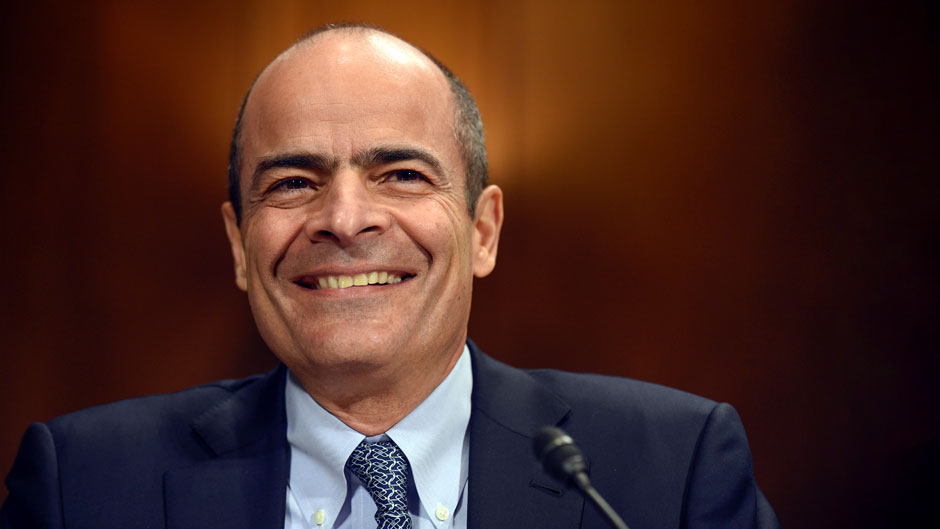Carlos Brito, who transformed a Latin American regional enterprise into the world’s largest brewing company, shared his insights on leadership in a virtual talk on Thursday with a University of Miami Patti and Allan Herbert Business School audience.
Brito, a Brazilian businessman who stepped down as CEO in July after 15 years at the helm of Anheuser-Busch InBev (ABI), attributed the firm’s expansion and global success to the company’s culture that highlights meritocracy—recruiting and developing young employees and promoting the most talented.
In his conversation with Dean John Quelch, Brito noted that meritocracy is the accepted approach to management in sports—where the best players play and others warm the bench—and in many aspects of life, though often not in the business world.
“Employees want to know that what they bring to the table, their talents and contributions, will be recognized. And they also respect candor—they want for things to be said in a civilized fashion but straightforward,” said Brito, pointing out that providing frequent direct employee assessment was a mainstay of the ABI workplace culture.
In his own development as a leader, Brito said that honest, constructive feedback from his mentors proved invaluable. “I’ve always had mentors who were willing to tell me what I needed to hear in a constructive respective way rather than what I wanted to hear,” he said.
A company’s success depends on three key components—leadership, knowledge of the business you’re in, and some management system—and leadership is far and away the most prominent factor, he explained.
“Leadership is about achieving consistent results better than your peers. So, it has everything to do with teambuilding, recruiting, and promoting. And it’s also about doing it the right way, ethically, and with no shortcuts,” Brito said.
“Clearly leadership is a team sport,” he noted. “You need a team effort to achieve your goals, and the leader has to believe in the power of the team and inspire them to believe that they can do more than they think they can.”
Early in his career, the former CEO benefited from a full scholarship provided by Brazilian magnate Jorge Paulo Lemann to attend his first year at Stanford University. He later went to work for Lemann’s boutique bank in Brazil and was inspired by the workplace culture his mentor had fostered there—one that he has replicated in his own career.
“Lemann believed in the power of people—that everything in business starts and ends with people. That was 60 years ago, and he was already with that opinion,” Brito said.
“Principles and culture are critical to a business,” he highlighted, explaining that ABI almost exclusively hired people right out of college because it was easier to mold them to the existing culture. “Our culture works for us, and people came because of our values—you need to have a big dream, the best people, and employees who practice ownership,” he said.
In terms of hiring, Brito cautioned against the tendency for leaders to hire those who are similar to them. At ABI meetings, the team practiced a “bias-breaking mindset,” he said. “You have to check your bias or otherwise you end up with a team that looks just like you,” he said. “Good decisions come out of having the positive tensions and different points of view, especially with complex issues, that diverse team players can represent.”
Before the merger that created AB InBev, beer-making was mostly managed locally. What supported the vision for the global transformation? “In our early days we were just in one country and our biggest motivation to go to other countries was our people,” he explained. “To be in just one country was to keep the funnel very narrow. We realized that our culture was one that could travel and going to other countries helped develop parallel paths and allowed us to become a much more interesting company.”
Brito said that ABI began considering issues of sustainability years ago—before the onset of contemporary business thinking that considers environmental, social, and corporate governance (ESG)—and today as a global firm it seeks to practice responsibility for its local impact.
“As a globalist you have to be seen as being part of the solution, not part of the problem. Because if you’re part of the problem you’re going to be regulated, taxed, restricted,” he said. “Because we all live on this planet, you have to be there when the community needs to solve some problems.”
Companies have to engage—not on every environmental or social topic—but on those where you can have a voice and an impact if you’re a business, he suggested. For ABI, one of those issues is ensuring water quality.
“For us, it’s very simple: no water, no beer,” he said. “Water is something we share with the communities in which we have our brewers; so, we have to work together with our brewers to keep the water sources healthy.”
Brito said that he has spent the past few months after leaving ABI exploring the many opportunities that he has been offered as possible next steps. “I want to continue to be busy, to be around people I can learn from, be with people who share the same values I do,” he said. “I want to have an impact in whatever I do next. For 32 years I knew beer, but now I am like a kid in a candy shop.”

